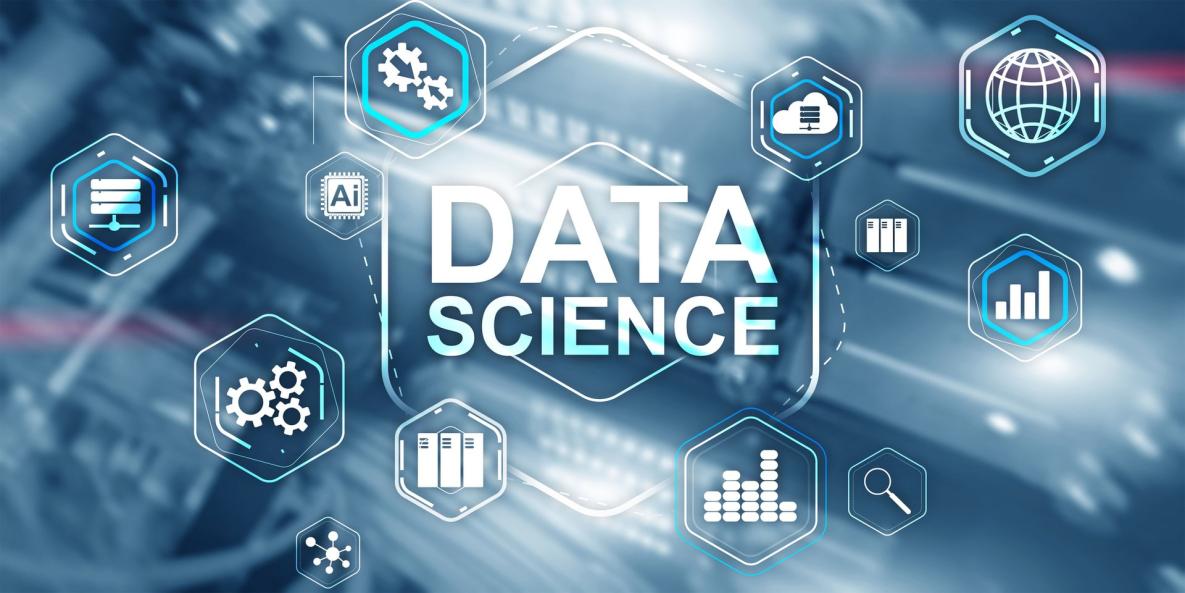What Are the Ethical Implications of AI Data Science in the United Arab Emirates?
The United Arab Emirates (UAE) is rapidly embracing artificial intelligence (AI) and data science as key drivers of its economic and social transformation. However, the ethical implications of AI data science raise important questions that need to be addressed to ensure responsible and beneficial AI development and deployment.

Definition Of AI Data Science
AI data science involves the use of AI techniques and algorithms to extract insights from large and complex datasets. It enables the development of AI systems that can learn from data, make predictions, and automate decision-making processes.
Overview Of The UAE's AI Strategy
The UAE has a comprehensive AI strategy that aims to position the country as a global leader in AI innovation and adoption. The strategy focuses on key areas such as AI research and development, AI education and training, and the establishment of AI-powered industries and services.
Significance Of Ethical Considerations In AI Data Science
The ethical implications of AI data science are significant and require careful consideration. These implications relate to issues such as privacy and data protection, algorithmic bias and fairness, transparency and accountability, human-AI interaction and labor displacement, and AI and national security.
I. Ethical Implications Of AI Data Science In The UAE
Privacy And Data Protection
- Concerns about data collection and usage: AI data science requires the collection and analysis of vast amounts of data, raising concerns about data privacy and the potential for misuse.
- Need for robust data protection regulations: The UAE needs to establish comprehensive data protection regulations that safeguard individual privacy rights and ensure responsible data handling practices.
- Balancing innovation with individual privacy rights: Striking a balance between fostering AI innovation and protecting individual privacy is a key challenge that requires careful consideration.
Algorithmic Bias And Fairness
- Potential for AI algorithms to perpetuate biases: AI algorithms can inherit and amplify biases present in the data they are trained on, leading to unfair or discriminatory outcomes.
- Importance of ensuring fairness and equity in AI systems: It is essential to develop AI systems that are fair and equitable, ensuring that they do not discriminate against certain groups or individuals.
- Addressing the challenge of algorithmic bias: Mitigating algorithmic bias requires addressing biases in training data, developing fair and unbiased algorithms, and implementing mechanisms for bias detection and correction.
Transparency And Accountability
- Need for transparency in AI decision-making processes: AI systems often make decisions based on complex algorithms that are difficult to understand and explain. Ensuring transparency in AI decision-making is crucial for building trust and accountability.
- Establishing mechanisms for accountability and oversight: Establishing mechanisms for accountability and oversight is essential to ensure that AI systems are used responsibly and in accordance with ethical principles.
- Promoting responsible AI development and deployment: Encouraging responsible AI development and deployment practices is necessary to minimize the risks associated with AI and maximize its benefits.
Human-AI Interaction And Labor Displacement
- Impact of AI on employment and labor markets: The increasing adoption of AI technologies has the potential to displace certain jobs and transform others, requiring a focus on reskilling and upskilling the workforce.
- Ethical considerations related to human-AI collaboration: Ensuring ethical human-AI collaboration is important, including issues such as responsibility, liability, and the preservation of human autonomy and dignity.
- Ensuring a just and equitable transition to an AI-powered economy: It is essential to ensure a just and equitable transition to an AI-powered economy, addressing the potential negative impacts on employment and ensuring that the benefits of AI are shared widely.
AI And National Security
- Ethical implications of AI in military and surveillance applications: The use of AI in military and surveillance applications raises ethical concerns related to privacy, accountability, and the potential for autonomous weapons systems.
- Balancing security concerns with civil liberties and human rights: Balancing national security concerns with civil liberties and human rights is a critical challenge in the context of AI-powered surveillance and security systems.
- Establishing clear guidelines for the ethical use of AI in national security: Developing clear guidelines and regulations for the ethical use of AI in national security applications is essential to minimize risks and protect fundamental rights.
II. Mitigating Ethical Risks And Promoting Ethical AI Development
Strengthening Regulatory Frameworks
- Developing comprehensive AI regulations and standards: Establishing comprehensive AI regulations and standards is crucial to ensure responsible AI development and deployment.
- Establishing independent oversight bodies: Creating independent oversight bodies responsible for monitoring AI systems and ensuring compliance with ethical principles is essential.
- Ensuring compliance with ethical principles: Implementing mechanisms to ensure compliance with ethical principles and standards is necessary to minimize the risks associated with AI.
Promoting AI Education And Awareness
- Raising awareness about the ethical implications of AI: Raising awareness among policymakers, industry leaders, and the general public about the ethical implications of AI is crucial for fostering responsible AI development.
- Incorporating AI ethics into educational curricula: Incorporating AI ethics into educational curricula at all levels is essential to equip future generations with the knowledge and skills needed to navigate the ethical challenges of AI.
- Encouraging responsible AI development practices: Encouraging responsible AI development practices among researchers, developers, and organizations is necessary to promote ethical AI development.
Fostering Multi-Stakeholder Collaboration
- Encouraging dialogue between policymakers, industry leaders, and civil society: Fostering dialogue and collaboration between policymakers, industry leaders, civil society organizations, and academia is essential for developing comprehensive AI governance frameworks.
- Facilitating public discourse on AI ethics: Facilitating public discourse on AI ethics through forums, workshops, and public consultations is crucial for gathering diverse perspectives and shaping ethical AI policies.
- Promoting international cooperation on AI governance: Promoting international cooperation on AI governance is necessary to address the global challenges and opportunities associated with AI.
Summary Of Key Ethical Implications

The ethical implications of AI data science in the UAE are multifaceted and require careful consideration. These implications relate to privacy and data protection, algorithmic bias and fairness, transparency and accountability, human-AI interaction and labor displacement, and AI and national security.
Importance Of Ethical AI Development In The UAE
Ethical AI development is crucial for ensuring that AI technologies are used responsibly and for the benefit of society. The UAE has the opportunity to be a leader in ethical AI development by implementing robust regulatory frameworks, promoting AI education and awareness, and fostering multi-stakeholder collaboration.
Call For Continued Dialogue And Action
The ethical implications of AI data science in the UAE are complex and evolving. Continued dialogue and action are necessary to address these implications and promote the responsible development and deployment of AI technologies. By working together, stakeholders can create an AI ecosystem that is ethical, transparent, and beneficial to all.
YesNo

Leave a Reply